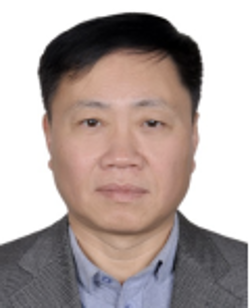Preparation of gradient Nb-Si based alloy film and high-throughput characterization of its oxidation resistance thits
Chungen Zhou*, Jiangbo Sha, Wei Jiang
Beijing University of Aeronautics and Astronautics, Beijing 100191, China
EXTENDED ABSTRACT: Nb-Si based superalloys have been considered as the most prospective materials for aerospace industry. However, alloying modification should be proposed due to poor oxidation resistance property of the material at high temperatures. Material genetic engineering is one of the advanced technologies for material science methodology, which committed to developing a new mode of material development for computational materials, high-throughput preparation and characterization technology. A high throughput method was applied to prepare nonequilibrium Nb–Si based alloy film on Si wafer by magnetron cosputtering technology. SEM, EDS, FIB, XRD, GIXRD and Raman were used to analyze composition, oxides, microstructure of the as-deposited and oxidized film (1250 ℃/ 10 - 20 min). The results indicate that the Nb– Si based alloy film is comprised of continuous composition gradients of Nb, Cr, Ti, Si and Al. The composition range synthesized in the combinatorial deposition is (46–56) Nb-(11 - 31) Cr-(13–19) Ti-(10–14) Si-0.5Al (at. %). The as-deposited film is composed of amorphous phase, and the film is dense, compact and about 2 μm thick. Raman spectra was used to detect the oxides of the film after oxidation at 1250 ℃ for 10 and 20 min. The oxide scales consist of CrNbO4, CrNbO4 + Nb2O5 + TiNb2O7 and Nb2O5 + TiNb2O7 from high Cr content area to low Cr content area. Composition for establishment of a protective continuous CrNbO4 scale is (24–50) Nb-(22–64)Cr-(7–16)Ti-(4–12)Si-(0.6–1.5)Al (at. %). The high-throughput screening results were confirmed by high-throughput oxidation test platform which was designed and built by ourself.

Chungen Zhou has completed his bachelor, master and PhD degree from 1982- 1993 at University of Science and Technology Beijing. After obtaining his PhD degree in 1993, he was assigned to the Department of Materials, Beihang University. In 1997 and 2004, he worked as a visiting professor at Pohang University of Science and Technology in Korea and Juelich Research Center in Germany.